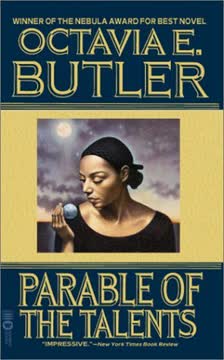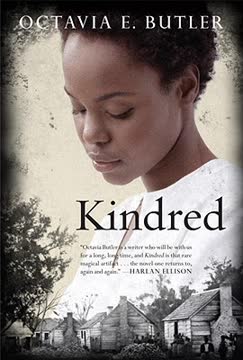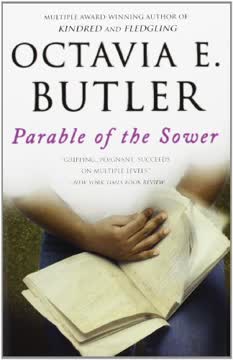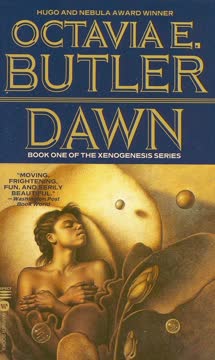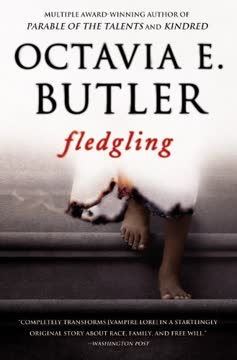Plot Summary
A New Faith's Fragile Beginnings
In a dystopian America, Lauren Olamina establishes Earthseed, a new faith that embraces the concept that "God is Change." Her community, Acorn, becomes a sanctuary for those seeking stability amidst societal collapse. Lauren's leadership is marked by her unwavering belief in the transformative power of change, which she sees as essential for survival. Earthseed is not just a spiritual guide but a practical philosophy aimed at adapting to the world's unpredictability. As a leader, mother, and visionary, Lauren is committed to Earthseed's ultimate goal: to take root among the stars.
Chaos and Change: A World Unraveling
The United States is in turmoil, plagued by environmental disasters, economic instability, and social unrest. The government is overwhelmed, allowing extremist groups to rise unchecked. Amidst this chaos, Lauren's community struggles to survive. The Pox, a period of prolonged upheaval, has left its mark, making the promise of a better future seem distant. Yet, Earthseed offers hope, teaching that change is the only constant and that humanity must adapt or perish.
A Community Under Siege
Acorn faces threats from both external forces and internal dissent. Andrew Steele Jarret, a demagogue advocating for a "Christian America," poses a direct threat to Earthseed's inclusive philosophy. As Jarret's influence grows, so does the danger to communities like Acorn. Internally, Lauren struggles to maintain unity and purpose among her followers, some of whom are tempted by Jarret's promises of order and stability. The tension between faith and fear tests the resilience of Earthseed.
The Fall of Acorn
Acorn is attacked by Jarret's Crusaders, who view the community as a threat to their vision of a Christian America. The invaders use gas to subdue the residents, separating families and placing slave collars on the adults. Lauren's husband, Bankole, is killed, and her infant daughter, Larkin, is taken away. The community is renamed Camp Christian, and its members are subjected to reeducation. Despite the devastation, Lauren's resolve to resist and survive remains unbroken.
Captivity and Resistance
The captives of Camp Christian endure daily torment and forced indoctrination. The Crusaders' cruelty knows no bounds, as they use the collars to inflict pain and assert control. Yet, Lauren and her followers cling to hope, secretly planning their escape. They gather information, watch for weaknesses, and wait for the moment to strike back. The bonds of community and shared suffering strengthen their resolve to reclaim their freedom and their children.
A Mother's Desperate Hope
Lauren's grief over the loss of her daughter and husband is profound, yet she refuses to succumb to despair. Her belief in Earthseed and its Destiny sustains her, even as she faces unimaginable hardship. She dreams of a future where her daughter will grow up free, where Earthseed will flourish, and where humanity will reach for the stars. In the darkest moments, Lauren's faith in change and her determination to shape it become her guiding light.
A Community's Hidden Resilience
In the aftermath of Acorn's fall, the community members endure brutal conditions at Camp Christian. They are subjected to forced labor, indoctrination, and abuse by their captors. Despite the harshness, they find ways to resist and maintain their spirit. Emery Mora's act of defiance, killing her captors before taking her own life, becomes a symbol of resistance. The community learns that the collars controlling them can be disabled, sparking hope for escape. They cling to Earthseed's teachings, finding strength in the belief that change is inevitable and that they must shape it to survive.
Desperation Breeds Unyielding Hope
Lauren Olamina, separated from her daughter Larkin, is driven by the hope of reunion. She navigates the treacherous world outside, gathering allies and resources. Her journey is fraught with danger, but her unwavering belief in Earthseed and its Destiny sustains her. She encounters others who have suffered under the oppressive regime, and together they form a network of support. Lauren's leadership and vision inspire those around her, and she becomes a beacon of hope for a better future, even as she grapples with her own grief and loss.
A Fractured Family's Reunion
Lauren's brother, Marc, now a minister in the Church of Christian America, is a complex figure torn between his past and present. Their reunion is fraught with tension, as Marc struggles to reconcile his beliefs with the reality of his sister's suffering. Despite their differences, Lauren and Marc find common ground in their shared history and the hope of finding Larkin. Their relationship is a microcosm of the larger struggle between faith and ideology, highlighting the personal cost of societal upheaval.
Seeds of a New Beginning
As Lauren and her allies regroup, they lay the groundwork for a new community rooted in Earthseed's principles. They focus on education, self-sufficiency, and preparing for the Destiny of taking root among the stars. This new beginning is marked by a commitment to inclusivity and resilience, drawing on the lessons learned from Acorn's fall. The community becomes a symbol of hope and renewal, embodying the belief that change is not only possible but necessary for survival.
The Destiny of Earthseed
Earthseed's teachings gain traction, offering a path forward in a world desperate for direction. Lauren's vision of humanity's potential to transcend its earthly limitations resonates with those seeking purpose. The movement grows, attracting followers who are inspired by the promise of a new beginning among the stars. Earthseed becomes a guiding force, challenging individuals to embrace change and work collectively toward a shared destiny. Lauren's legacy is cemented as a visionary leader who dared to dream of a future beyond the confines of Earth.
Characters
Lauren Olamina
Lauren is the heart of Earthseed, driven by her belief in humanity's potential to shape its destiny. Her journey is marked by loss and resilience, as she navigates a world in turmoil to find her daughter and rebuild her community. Her leadership inspires others to embrace change and work toward a better future.
Bankole
Bankole is Lauren's husband, a doctor who provides stability and wisdom to the Acorn community. He is deeply in love with Lauren and shares her dream of a better future, though he is more cautious and pragmatic. Bankole's death during the attack on Acorn is a devastating blow to Lauren, leaving her to navigate the challenges of captivity and resistance alone.
Marc (Marcus Olamina)
Marc is torn between his past with Lauren and his present role in the Church of Christian America. His internal struggle reflects the broader conflict between faith and ideology. Despite their differences, his bond with Lauren remains, highlighting the complexity of familial relationships in a fractured world.
Zahra Balter
Zahra's strength and resourcefulness are vital to the community's survival. Her death is a profound loss for Lauren, symbolizing the high cost of resistance and the enduring impact of friendship and loyalty in the face of adversity.
Dan Noyer
Dan is a teenager who, despite his youth, shows remarkable courage and determination. He escapes captivity to rescue his sister, Nina, and bring her back to Acorn. Dan's death after their return is a tragic reminder of the harsh realities of their world and the high cost of survival.
Andrew Steele Jarret
Jarret's vision of a "Christian America" poses a direct threat to Earthseed's inclusive philosophy. His rise to power and the subsequent oppression highlight the dangers of extremism and the struggle for ideological dominance in a fractured society.
Emery Mora
Emery's act of resistance against her captors becomes a rallying cry for the community. Her story underscores the theme of personal sacrifice for the greater good, illustrating the lengths to which individuals will go to reclaim their freedom and dignity.
Plot Devices
Earthseed
Earthseed is the philosophical foundation of Lauren's vision, teaching that "God is Change" and humanity's destiny lies among the stars. It offers hope and purpose in a chaotic world, uniting followers in the pursuit of a shared future.
Slave Collars
The collars used by the Crusaders represent the dehumanizing force of tyranny. Their eventual deactivation becomes a turning point, symbolizing the community's reclaiming of autonomy and the power of collective resistance.
The Crusaders
The Crusaders embody the dangers of extremism, using violence and oppression to impose their beliefs. Their actions serve as a catalyst for the community's resistance, highlighting the struggle between freedom and tyranny.
Analysis
"Parable of the Talents" by Octavia E. Butler is a powerful narrative that delves into themes of faith, resilience, and the transformative power of change. Through the lens of Lauren Olamina's journey, the novel explores the complexities of human nature and the struggle for survival in a world on the brink of collapse. Butler's work challenges readers to consider the impact of extremism and the importance of adaptability in the face of adversity. Earthseed's teachings offer a vision of hope and unity, emphasizing the necessity of embracing change to shape a better future. The novel's exploration of familial bonds, ideological conflicts, and the quest for freedom resonates with contemporary issues, making it a timeless and thought-provoking read.
Last updated:
FAQ
Synopsis & Basic Details
What is Parable of the Talents about?
- A Dystopian America's Collapse: The novel plunges into a near-future United States ravaged by climate change, economic collapse, and the rise of Christian fundamentalist extremism, known as the Christian America (CA) movement, led by President Andrew Steele Jarret.
- Founding a New Faith: It follows Lauren Olamina, a young Black woman with hyperempathy syndrome, who founds Earthseed, a new religion centered on the belief that "God is Change" and humanity's destiny is to colonize other planets.
- Struggle for Survival: Lauren establishes Acorn, a self-sufficient community in California, which becomes a sanctuary for diverse refugees, but faces existential threats from Jarret's fanatical followers, leading to devastating personal losses and a relentless fight for freedom and the future of Earthseed.
Why should I read Parable of the Talents?
- Prophetic Social Commentary: Octavia E. Butler's novel offers a chillingly prescient vision of societal breakdown, religious extremism, and political demagoguery, making its themes of survival, faith, and human resilience deeply relevant to contemporary issues.
- Complex Character Exploration: Readers will find a protagonist, Lauren Olamina, whose unwavering conviction and profound personal sacrifices drive a narrative rich in psychological depth, exploring the burdens of leadership and the cost of revolutionary ideals.
- Unique Philosophical Framework: The Earthseed philosophy, with its core tenet "God is Change," provides a compelling and challenging spiritual framework that encourages adaptability, critical thinking, and a long-term vision for humanity's future among the stars.
What is the background of Parable of the Talents?
- Post-Apocalyptic "Pox" Era: The story is set in a United States grappling with the aftermath of "the Pox," a prolonged period of environmental, economic, and social chaos (roughly 2015-2030), which has left much of the country in ruins, with widespread poverty, crime, and a breakdown of civil order.
- Rise of Christian Extremism: Politically, the nation is dominated by the Christian America (CA) movement, led by President Andrew Steele Jarret, who promises to "make America great again" by enforcing a rigid, intolerant form of Christianity, leading to the persecution of non-believers and the establishment of "reeducation" camps.
- Technological Regression & Selectivity: While some advanced technologies like armored housetrucks and sophisticated slave collars exist, much of society has regressed to a 19th-century existence, with education becoming a privilege and basic survival skills paramount, highlighting a selective and uneven technological landscape.
What are the most memorable quotes in Parable of the Talents?
- "All that you touch / You Change. / All that you Change / Changes you. / The only lasting truth / Is Change. / God / Is Change.": This foundational Earthseed verse encapsulates the core philosophy of the religion, emphasizing the inescapable and transformative nature of existence, a central
Earthseed theme. - "The Destiny of Earthseed / Is to take root among the stars.": This quote defines the ultimate, long-term purpose of Earthseed, providing a grand, unifying vision for humanity's survival and evolution beyond Earth, serving as a powerful
Earthseed motivation. - "To be led by a tyrant / is to sell yourself / and those you love / into slavery.": This verse from Lauren's "Books of the Living" serves as a stark warning against authoritarian leadership, directly reflecting the political climate under President Jarret and the
themes in Parable of the Talentsconcerning freedom and oppression.
What writing style, narrative choices, and literary techniques does Octavia E. Butler use?
- Dual Narrative Perspective: Butler employs a unique narrative structure, primarily through Lauren Olamina's first-person journal entries, interspersed with retrospective commentary and "Memories of Other Worlds" by her estranged daughter, Asha Vere, offering contrasting viewpoints and
Lauren Olamina analysis. - Prophetic Realism & Dystopian Elements: The writing style is stark, direct, and unflinching, grounding its speculative future in a chillingly plausible reality, using dystopian elements to amplify social commentary on issues like climate change, economic inequality, and religious extremism.
- Intertextual Allusion & Earthseed Verses: The novel frequently integrates Earthseed verses, functioning as both poetic interludes and thematic anchors, while also drawing heavily on biblical allusions, most notably the Parable of the Talents itself, to explore
religious themesandsymbolism.
Hidden Details & Subtle Connections
What are some minor details that add significant meaning?
- The Significance of Names: Lauren's middle name, "Oya," is revealed by Asha to be a Nigerian Orisha (goddess) of wind, fire, and death, symbolizing great change, subtly foreshadowing Lauren's powerful, often destructive, yet transformative role as a
Lauren Olamina character analysis. - Dying Redwoods as Environmental Metaphor: Bankole's observation that the ancient redwood trees are dying, even those resistant to climate change, symbolizes the profound and irreversible environmental degradation, suggesting that even the most resilient natural systems are succumbing to human-induced "Pox" and
environmental themes. - May's Mutilation and Silence: The character of May, whose tongue was cut out, is a subtle but potent symbol of the extreme repression of women in the emerging "religious" towns, highlighting the brutal consequences of
gender inequality themesand the silencing of dissent, even before the Crusaders' full impact.
What are some subtle foreshadowing and callbacks?
- Lauren's Recurring Nightmare: Her dream of her family vanishing and the house turning to ashes, followed by her own body fading, directly foreshadows the destruction of Acorn, the loss of her family, and her subsequent helplessness under the slave collars, providing
Lauren Olamina psychological analysis. - The Parable of the Talents Echoes: The biblical parable, read by Lauren's father in her dream, serves as a constant callback and thematic framework, subtly judging characters like Lauren (who invests her "talent" of Earthseed) and Marc (who initially buries his "talent" of faith), deepening the
Parable of the Talents symbolism. - Bankole's Warnings about Jarret: Bankole's early, pragmatic fears about Jarret's rise to power and the dangers of drawing attention to Acorn subtly foreshadow the community's eventual downfall, highlighting the tension between Lauren's idealistic drive and his grounded realism, a key
Bankole motivation.
What are some unexpected character connections?
- The Durans and Marcus's Past: Marcus's adoption of the surname "Duran" from the scavengers who saved him is a poignant, unexpected connection to his stepmother's maiden name, subtly linking his traumatic past to his original family and hinting at his deep-seated need for belonging and identity, crucial for
Marcus Olamina motivations. - Asha Vere's Dreamask Scenarios: Asha's childhood creation of elaborate Dreamask scenarios, imagining different families and lives, unexpectedly mirrors her biological mother Lauren's own "dreaming" of Earthseed, revealing a shared creative and escapist impulse despite their vastly different upbringings, a subtle
Asha Vere character analysis. - The CA Security Guard from Acorn: Lauren's recognition of one of her former "teachers" from Camp Christian working as a security guard at the CA Center in Eureka underscores the deep, insidious connections between Jarret's official church and the brutal "Crusaders," revealing the systemic nature of the oppression and the
themes in Parable of the Talentsabout complicity.
Who are the most significant supporting characters?
- Dolores Ramos George: The matriarch of George's complex in Georgetown, Dolores is a pragmatic, honest, and influential figure who provides a crucial safe haven and information hub for Lauren and her group, embodying a form of grounded, community-based resilience outside of Earthseed's direct influence.
- Len Ross (Belen Ross): Initially a cynical, privileged survivor, Len becomes Lauren's intellectual sparring partner and eventual acolyte, challenging Earthseed's tenets while ultimately embracing its purpose, representing the conversion of a skeptical, traumatized individual into a dedicated
Earthseed teacher. - Nia Cortez: A lonely, former public school teacher, Nia represents the educated, middle-class individuals disillusioned by societal collapse and Jarret's regime. Her willingness to learn Earthseed and offer her home as a potential sanctuary highlights the movement's appeal beyond the immediate survival needs of the poor.
Psychological, Emotional, & Relational Analysis
What are some unspoken motivations of the characters?
- Lauren's Obsession with Destiny: Beyond survival, Lauren's relentless drive for Earthseed's Destiny is fueled by a deep-seated fear of humanity's self-destructive cycles, a desire to break free from the "smooth dinosaurs" evolutionary trap, and a need to impose order on chaos, revealing a profound
Lauren Olamina motivation. - Bankole's Desire for a "Normal" Life: His persistent attempts to convince Lauren to move to Halstead stem from a profound weariness with the chaos and a desperate longing to provide a safe, stable, and conventionally "normal" life for his family, especially Lauren and Larkin, reflecting his
Bankole character analysis. - Marc's Quest for Self-Worth: Marc's embrace of Christian America and his desire to become a minister are deeply rooted in his traumatic past as a slave and prostitute, seeking to reclaim dignity, authority, and a sense of purpose that was brutally stripped from him, driving his
Marcus Olamina motivations.
What psychological complexities do the characters exhibit?
- Hyperempathy's Burden and Strength: Lauren's hyperempathy syndrome is a constant source of pain and vulnerability, yet it also fuels her compassion and understanding of others' suffering, making her uniquely attuned to the human condition and driving her mission to alleviate collective pain through Earthseed, a key
Lauren Olamina psychological analysis. - Trauma-Induced Denial and Conversion: Marc's initial denial of Lauren's experiences at Camp Christian and his subsequent embrace of CA's narrative illustrate the psychological defense mechanism of denial in the face of overwhelming trauma, allowing him to find comfort and purpose in a new, albeit flawed, ideology.
- Asha's Inherited Trauma and Resentment: Asha's narrative reveals the long-term psychological impact of her abduction and adoption, manifesting as a deep-seated resentment towards her adoptive parents (especially Kamaria, the "perfect" dead sister) and a complex, often critical, relationship with her biological mother, Lauren, highlighting
generational trauma themes.
What are the major emotional turning points?
- Lauren's Breakdown After Bankole's Death: The moment Lauren learns of Bankole's death and her subsequent lashing into unconsciousness marks a profound emotional collapse, where her usual composure shatters, revealing the depth of her grief and the sheer brutality of her captivity, a critical
emotional turning point. - Harry's Grief and Desperate Search: Harry Balter's quiet, sustained grief over Zahra's death and the abduction of his children, culminating in his desperate, solitary journey south, highlights the profound emotional toll of loss and the lengths a parent will go to for their children, showcasing
grief and loss themes. - Len's Confession of Hopelessness: Len Ross's admission that she is "committing a kind of suicide" by heading to Alaska without purpose, and her subsequent emotional breakdown in Lauren's arms, marks a pivotal moment where her guarded cynicism gives way to raw vulnerability, allowing her to accept Earthseed's purpose.
How do relationship dynamics evolve?
- Lauren and Bankole: Idealism Meets Pragmatism: Their relationship evolves from a partnership of necessity into deep love, but is constantly tested by Lauren's unwavering idealism and Bankole's pragmatic desire for safety and stability, culminating in his tragic death and Lauren's profound loss, central to
relationship dynamics analysis. - Lauren and Marc: Love, Betrayal, and Ideological Divide: The bond between Lauren and her brother Marc is fraught with love, resentment, and ideological conflict. Marc's initial rejection of Lauren's truth and his embrace of CA represent a deep betrayal, yet their eventual, fragile reconciliation underscores the enduring, albeit complex, nature of family ties.
- Lauren and Asha: The Unseen Mother and the Judging Daughter: The relationship between Lauren and her daughter, Asha, is defined by absence and retrospective judgment. Asha's narrative, shaped by her adoptive parents' biases and her own trauma, offers a critical lens on Lauren's choices, revealing the profound impact of separation and the difficulty of understanding a parent's revolutionary path, a key
mother-daughter relationship theme.
Interpretation & Debate
Which parts of the story remain ambiguous or open-ended?
- The Fate of May and the Noyer Girls (Kassia & Mercy): The narrative explicitly states that May and the two youngest Noyer girls were the only ones who might have escaped the initial raid on Acorn, and their ultimate fate is never definitively revealed, leaving their survival and whereabouts open to reader interpretation and
Parable of the Talents unanswered questions. - The Extent of CA's Complicity with the Crusaders: While Marc insists the Crusaders are a "splinter group" and Jarret disclaims them, Lauren's encounter with a former "teacher" working at a CA shelter suggests a deeper, more systemic connection between the official church and the brutal reeducation camps, leaving the true nature of their relationship ambiguous and debatable for
Christian America analysis. - The "Truth" of Marc's Conversion: Whether Marc genuinely believes in Christian America's teachings or if his conversion is a calculated move for personal power and validation remains open to interpretation, especially given his past as a preacher and his deep-seated need for respect, adding complexity to
Marcus Olamina motivations.
What are some debatable, controversial scenes or moments in Parable of the Talents?
- Lauren's Manipulation of Marc: Lauren's deliberate decision to allow Marc to preach at Gathering before he was truly ready, knowing he would likely fail and be humiliated, is a controversial act that highlights her ruthless pragmatism and willingness to sacrifice individual feelings for the perceived good of Earthseed, sparking
Lauren Olamina character debate. - The Burning of Camp Christian/Acorn: The decision by Lauren and the freed captives to burn Acorn, their former home, after their escape is a highly debatable act. While framed as cleansing and preventing its reuse by the Crusaders, it also represents the destruction of their own past and a painful severing of ties, raising questions about the ethics of their
resistance strategies. - Lauren's Prioritization of Earthseed over Family: Asha's consistent critique that Lauren "sacrificed us for an idea" and that Earthseed was her "first child" is a central point of contention, forcing readers to weigh the value of a grand, species-level purpose against immediate familial bonds and personal happiness, a core
themes in Parable of the Talentsdebate.
Parable of the Talents Ending Explained: How It Ends & What It Means
- Lauren's Legacy and Personal Cost: The novel concludes with Lauren Olamina, at 81, witnessing the launch of the first starship, the Christopher Columbus, fulfilling Earthseed's Destiny. This signifies her ultimate success in establishing a movement that ensures humanity's long-term survival, but it comes at the profound personal cost of her relationship with her daughter, Asha, and the loss of her immediate family, offering a complex
Lauren Olamina ending explained. - Asha's Unresolved Grief and Judgment: Asha Vere, the narrator, reveals her continued estrangement from Lauren, choosing to care for her ailing Uncle Marc rather than join her mother at the launch. Asha's final lines, "How completely, how thoroughly he has stolen my child. I have never even tried to forgive him," underscore her unresolved grief, resentment, and the enduring pain of her abduction, providing a critical
Asha Vere perspectiveon the ending. - The Destiny's Fulfillment and Humanity's Adulthood: The epilogue emphasizes Earthseed as humanity's "adulthood," a necessary, terrifying, and empowering step away from the "mother" Earth. The starship's launch symbolizes a new beginning and the species' chance at immortality, but the narrative's dual perspective ensures that this grand achievement is tempered by the recognition of the immense personal sacrifices and the
human cost of progressinherent inEarthseed's Destiny.
Review Summary
Parable of the Talents continues Butler's dystopian story, exploring themes of religion, oppression, and survival. Many readers found it prescient and relevant to current events, praising Butler's vision and writing. The book's portrayal of religious extremism and societal collapse resonated strongly. Some felt it was even more powerful than its predecessor, while others found certain aspects less engaging. The novel's exploration of family dynamics and the protagonist's complex relationships added depth to the narrative. Overall, readers found it thought-provoking and impactful, despite its challenging content.
Similar Books
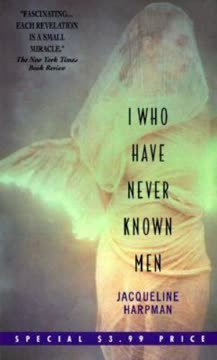
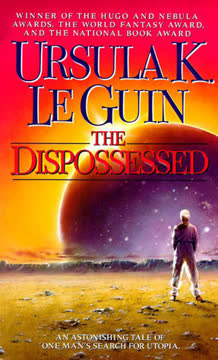
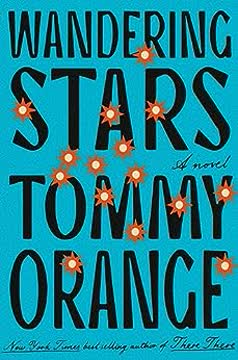
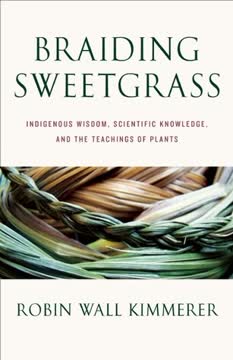
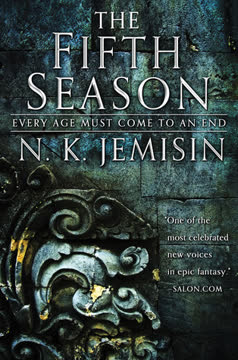
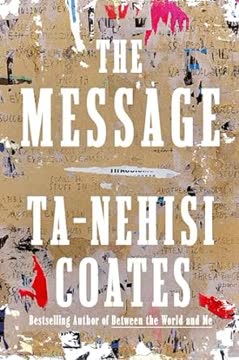
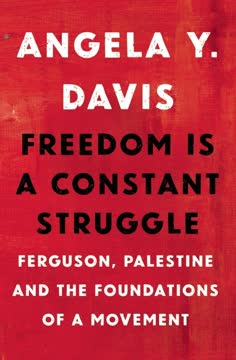
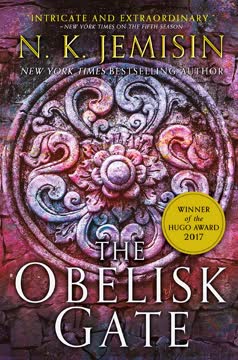

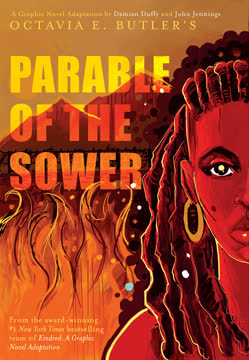
Download PDF
Download EPUB
.epub digital book format is ideal for reading ebooks on phones, tablets, and e-readers.
